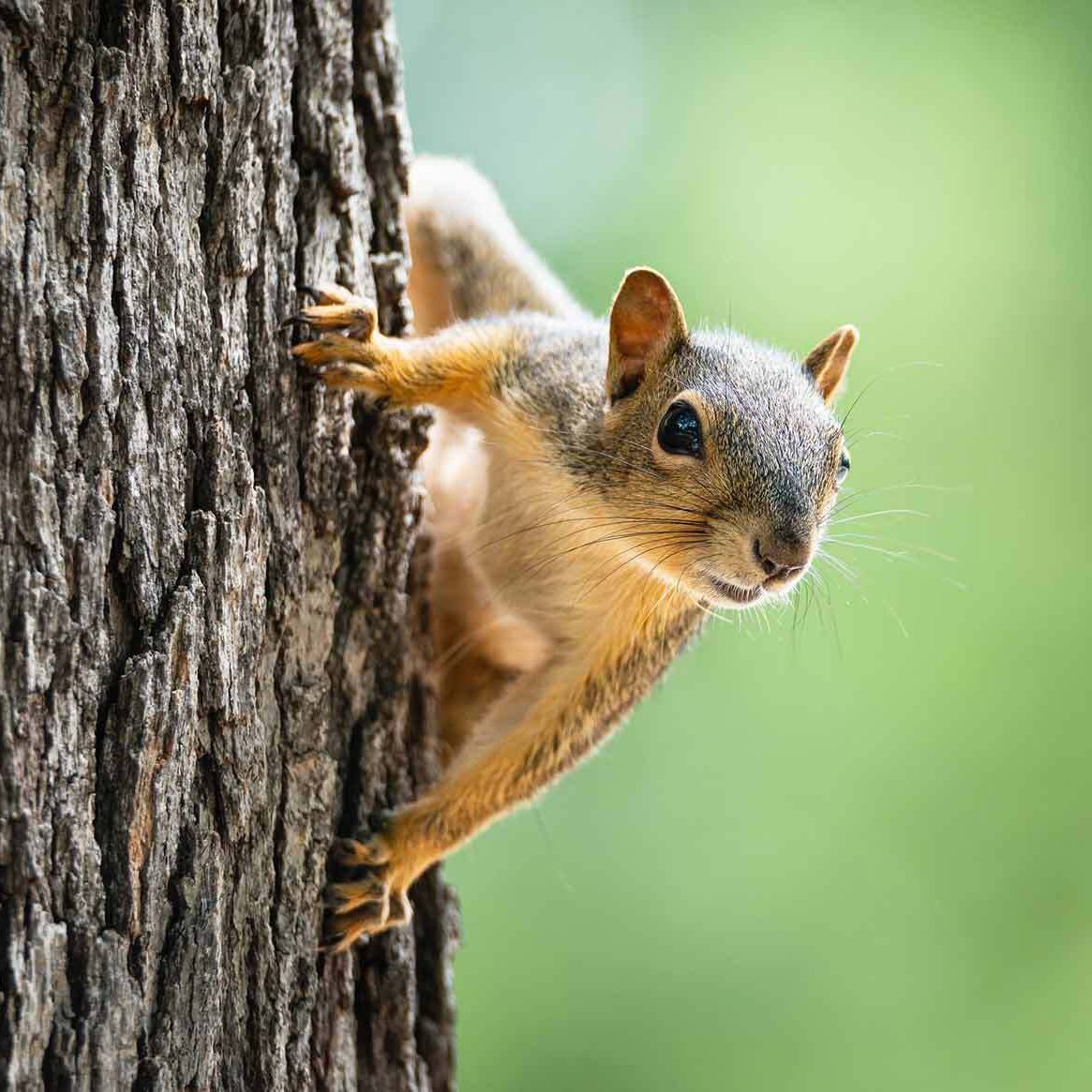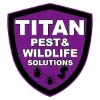Don’t let squirrels make your home their winter retreat. Contact Titan Pest & Wildlife Solutions for an inspection.
As the temperature begins to drop and the leaves start to fall, many homeowners in Missouri and across the Midwest face an increasing problem—squirrel infestations. These furry critters are more than just a nuisance in your yard; they often find their way into homes, causing damage and creating a potential health hazard. But why is fall the peak season for squirrel infestations?

Nature’s Calendar: Why Squirrels Get Busy in Fall
Preparation for Winter: Nesting and Food Storage
One of the primary reasons squirrels become more active during the fall is their need to prepare for the harsh winter months ahead. Squirrels do not hibernate, so they spend much of the fall season gathering food and building nests. Your attic, chimney, or the walls of your home provide the perfect shelter for their winter nests.
Squirrels seek warm, safe, and insulated areas to create a drey (squirrel nest) or expand an existing one. These spaces are typically found in attics, wall voids, and even under decks or porches. Once inside, squirrels can chew through insulation, wires, and wood, causing costly damage and potential fire hazards.
Abundant Food Sources
During the fall, trees are full of acorns, nuts, seeds, and berries that squirrels depend on to build up their winter food stash. Squirrels are incredibly industrious, gathering as much food as possible during this time. However, as natural food sources dwindle later in the season, squirrels will explore other areas—like your home—for additional food.
Bird feeders, pet food, and even food scraps can attract squirrels. Once they discover a consistent food supply near your home, they are more likely to seek entry into your attic or crawl spaces for shelter and food storage.
Breeding Cycle
Though squirrels typically breed twice a year, once in late winter and again in the summer, the young squirrels born during the summer start to become independent by the fall. Juvenile squirrels are particularly active during this time as they begin to establish their territories and seek out secure locations to spend the winter. This increased activity increases the likelihood of squirrel encounters in urban and suburban settings.
Juvenile squirrels may be less experienced than adults and, as a result, more likely to explore homes, sheds, and garages in search of a suitable nesting site, making them a common problem during the fall.
Falling Temperatures
As the weather cools, squirrels seek out warmer environments like many other animals. While they can survive outdoors during the winter, they prefer the warmth of a sheltered space. Attics, in particular, offer the warmth and protection squirrels need. The insulation in attics is especially appealing to squirrels, providing a cozy and safe space to raise their young or survive the winter.
As temperatures continue to drop in Missouri, squirrels become more aggressive in their attempts to enter homes, knowing that they will need a stable and warm environment to survive.
How to Protect Your Home from Squirrel Infestations
Preventing a squirrel infestation before it starts is the best way to avoid the damage and hassle of removing them. Here are a few tips to squirrel-proof your home this fall:
- Seal Entry Points: Inspect your home for any cracks, holes, or openings that squirrels could use to gain entry. Pay close attention to vents, chimneys, and gaps around windows and doors. Use heavy-duty wire mesh, steel wool, or caulk to seal these areas.
- Trim Tree Branches: Squirrels often use overhanging branches as highways to your home. Trim tree branches close to your roof to make it more difficult for squirrels to access your attic.
- Secure Food Sources: Remove bird feeders or switch to squirrel-proof feeders. Keep pet food inside and ensure your trash cans are sealed tightly to eliminate accessible food sources.
- Install Chimney Caps: Squirrels can enter homes through chimneys, so installing a chimney cap can prevent them from using this as an entryway.
- Call a Professional: If you suspect you have a squirrel infestation, it’s essential to contact a wildlife removal professional. Squirrels can cause significant damage, and removing them yourself can be dangerous. Professional services, like those offered by Titan Pest & Wildlife Solutions, ensure that the squirrels are removed humanely and that your home is sealed to prevent future infestations.
Fall is the peak season for squirrel infestations as these creatures prepare for the winter by seeking warm shelter and food sources. Homeowners should be especially vigilant and take preventative measures to keep squirrels out. By securing your home and addressing any potential entry points, you can avoid the costly damage and frustration of a squirrel invasion. Should you encounter any issues, remember that Titan Pest & Wildlife Solutions is here to help with expert squirrel removal and wildlife control services.

